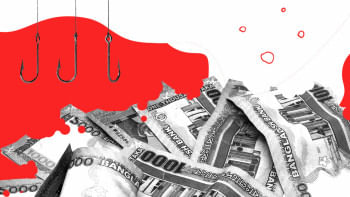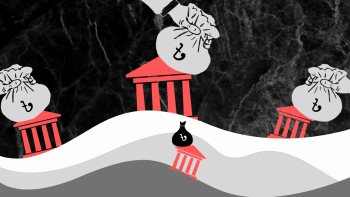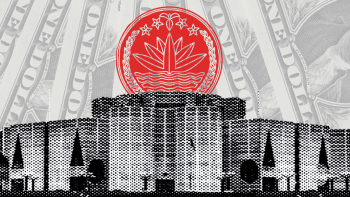Can the banking sector be turned around?

After the looting of thousands of crores of taka from our banking sector, and the entire sector's rating getting demoted by the Moody's from "stable" to "negative", the cabinet has cleared the draft Bank Company (Amendment) Act, 2023 in a bid to improve financial governance in the country. And if implemented properly, it could have major consequences for habitual loan defaulters and for how bank boards are formed and run. This has been long overdue. Experts have been howling for it for years, and finally the government has decided to go for the amendment with a $250 million loan from the World Bank hanging in the balance because of this, according to finance ministry officials. The IMF, as part of its $4.7 billion loan, also stipulated that the government submits the draft law before parliament by September, which it seems poised to do.
Regardless of the reason behind the decision to finally approve the draft act, which has been stuck in the vetting stage with the law ministry since May 17, 2021, it is a welcome development for our banking sector. It could undo a lot of the bad government policies adopted in recent times, such as increasing the maximum number of members from the same family that could serve on a bank's board. It will also require bank directors and their family members to provide collateral, bonds or securities for taking loans from the bank, the absence of which has led to numerous scandals across our banking sector.
Banks will also have to publish lists of wilful defaulters on their websites and in newspapers. An individual will be considered a wilful defaulter if they do not repay a loan taken in their name or their company's name despite having the means to pay it back. And any person will be treated as a habitual defaulter if they take loans under the name of a non-existent company.
Additionally, banks will have to inform Bangladesh Bank about wilful loan defaulters and the central bank can then issue a ban on their foreign travel, obtaining trade license, and companies' registration to the joint stock and security exchange commission – which can act as a deterrence against the culture of wilful loan default in our country. The draft act also broadens the role of Bangladesh Bank in some aspects for it to investigate whether rules are being broken.
However, as good as all that sounds, a law is only as effective as its enforcement. One may recall that Bangladesh Bank has time and again flouted its own rules and regulations over the years – often under pressure from the finance ministry or other influential quarters. Such violations and misgovernance resulted in undue benefits for a few at the expense of the many. So, while the draft act seems promising, the proof of how sincere the government really is in addressing the problems in the sector, after having done the complete opposite for years, will be in how well it implements the law. For the health of the sector and our overall economy, we hope it will act properly and sincerely this time.


 For all latest news, follow The Daily Star's Google News channel.
For all latest news, follow The Daily Star's Google News channel. 








Comments